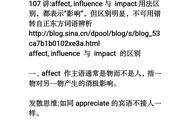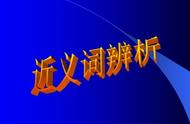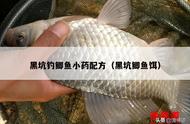
【常用词组】
*1. used to do sth. 过去常常做某事
*2. on a swim team 在游泳队
*3. from time to time 时常;有时
4. such a great idea
如此棒的一个主意
*5. get good scores on exams
考试取得好成绩
*6.somebody's background
某人的背景
*7. interview a 19yearold Asian pop star采访一位19岁的亚洲流行歌星
*8. take up singing to deal with her shyness
(开始)从事唱歌来克服害羞
*9. dare to sing in front of her class敢于在同学面前唱歌
*10. in front of crowds 在人群面前
*11. get tons of attention everywhere I go
我到的每一个地方都能吸引大量注意
*12. be careful about... 对……小心
*13. have much private time
有很多私人时间
*14. be prepared to give up your normal life准备好放弃你的正常生活
15. fight on 继续坚持
*16. a small number of guards
一小部分的守卫
*17. require a lot of talent and hard work需要大量的才能和艰辛的工作
18. make it to the top
成功达到顶峰
*19. read books on European history
读关于欧洲历史的书
20. a European country
一个欧洲国家
21. be afraid of being alone
害怕独自一人
*22. give a speech in public
公开演讲
*23. an ant and other insects
一只蚂蚁和其他昆虫
24. be nervous about 对……很紧张
*25. influence my life
=have an influence on my life
=make a difference to my life
对我的人生有影响
*26. be seldom absent from math classes不常缺席数学课
*27. succeed in doing sth.
做某事成功
*28. fail the examination
考试不及格
*29. in person 亲自
30. take a 24hour train ride
坐24小时的火车
*31. be proud of.../take pride in...
对……感到骄傲
*32. give a general selfintroduction in a job interview
在工作面试中做一个大概的自我介绍
3)absent作形容词,有时还表示“心不在焉的;茫然的”,通常只作定语。如:
He had an absent look on his face.
他脸上露出茫然的神色。
(2)absent作动词时,只用作及物动词,意为“缺席”,只接反身代词作宾语,表示“做某事缺席”,其后也接介词 from。如:
Why did you absent yourself from class yesterday?你昨天为什么没来上课?
4. take pride in和be proud of
(1)从意义上讲, take pride in=be proud of,两者都是“以……为荣”的意思,既可接sb.,也可接sth.。但用法上,各自稍有侧重点:
1)be proud of从语法上可看出,描述的是“处于”proud的状态,暗含着因果关系。如:I am proud of my child. 我以我的孩子为荣(我为我的孩子感到骄傲)。既说明了“我”处于骄傲状态,也点出骄傲的原因在于后面。
2)take pride in更多强调的是一种主动的态度。如:
I take pride in my work. 虽然也可以译成:我以工作为荣;但更有一层意思是:我在工作中,认真上进,我以此为荣。
正因如此,似乎具体的应用中,take pride in多接sth.。 如:
Do not be proud of your work, but take pride in your work!不要只因你的工作而骄傲,而要为你的所作所为而自豪!
(2)be the pride of是……的骄傲
I want to be the pride of my parents.我想成为我父母的骄傲。
【句法精析】
1. This party is such a great idea!
这个聚会是如此好的一个主意!
such的用法:
(1)作形容词,起到一种强调作用。如
①She has such a great talent for learning languages.
她在学习语言上很有天赋。
②Why are you in such a hurry?
你为什么这么匆忙?
【注意】通常情况下,如果such与名词之间还带有形容词,则不定冠词a/an要放在形容词前面。如:
We had such a wonderful time last weekend.上周末我们过得很愉快。
这时也可以用so,但要说
so wonderful a time。
(2)形成such... that结构,意为“如此……以至于……”,表示因为前面提到的原因引起了某种结果。如:
①He speaks to me in such a way that I always feel angry.他用那种方式跟我说话,以至于我总是很生气。
②It was such a boring movie that I fell asleep.这部电影是如此的乏味,所以我睡着了。
2. It's been three years since we last saw our primary school classmates.
自从上次我们小学同学见面以来已有三年了。(意思是“我们已经三年没见面了”)
(1)“It is/has been+一段时间+since从句(动词用过去式)”表示“从……以来已有多长时间了”。如:
It's been five years since I began to learn English.从我开始学英语以来已经有五年了。
(2)since作介词或连词,意为“自从……”,后接某一确定的时间点或时间状语从句,主句谓语动词是延续性动词,常与现在完成时态、现在完成进行时态或过去完成时态连用。如:
①He has been an English teacher since twenty years ago.
自从二十年前起他就是英语老师了。
②He has had the watch since he began to work.从他开始工作起他就有那块手表了。
(3)since还可引导原因状语从句,意为“既然;由于”。如:
Since everyone is here, let's begin.
既然大家都到齐了,我们开始吧。
【语法精讲】
【used to与be used to的用法】
(1)used to do sth.意为“过去常常做某事”,而现在往往不做了,用过去时态。如:
①I used to get up early in the morning when I was a high school student.我是高中生的时候,我常常早上很早起床。
②She used to like basketball, but now she likes football.她过去喜欢篮球,但现在她喜欢足球。
③I didn't use to exercise, but now I am used to playing basketball.我过去不常锻炼,但现在我习惯于打篮球。
(2)used to be意为“过去曾经是”。如
①My grandmother used to be an English teacher.
我奶奶曾经是一名英语老师。
②There used to be an orange tree in my aunt's yard.
我阿姨的院子里曾经有一棵橘子树。
(3)be used to意为“习惯于”,其中to为介词,后面跟名词或动名词,还可以用get, become来代替be。如:
①He is used to living in the countryside.他习惯住在农村。
②He is used to a hard life in the countryside.他习惯农村的艰苦生活。
(4)be used to do sth.意为“被用来做某事”,是被动语态的结构。如:
①Wood is often used to make desks and chairs.
木头经常被用来制作书桌和椅子。
②A knife is used to cut things.
刀是用来切割东西的。
,













